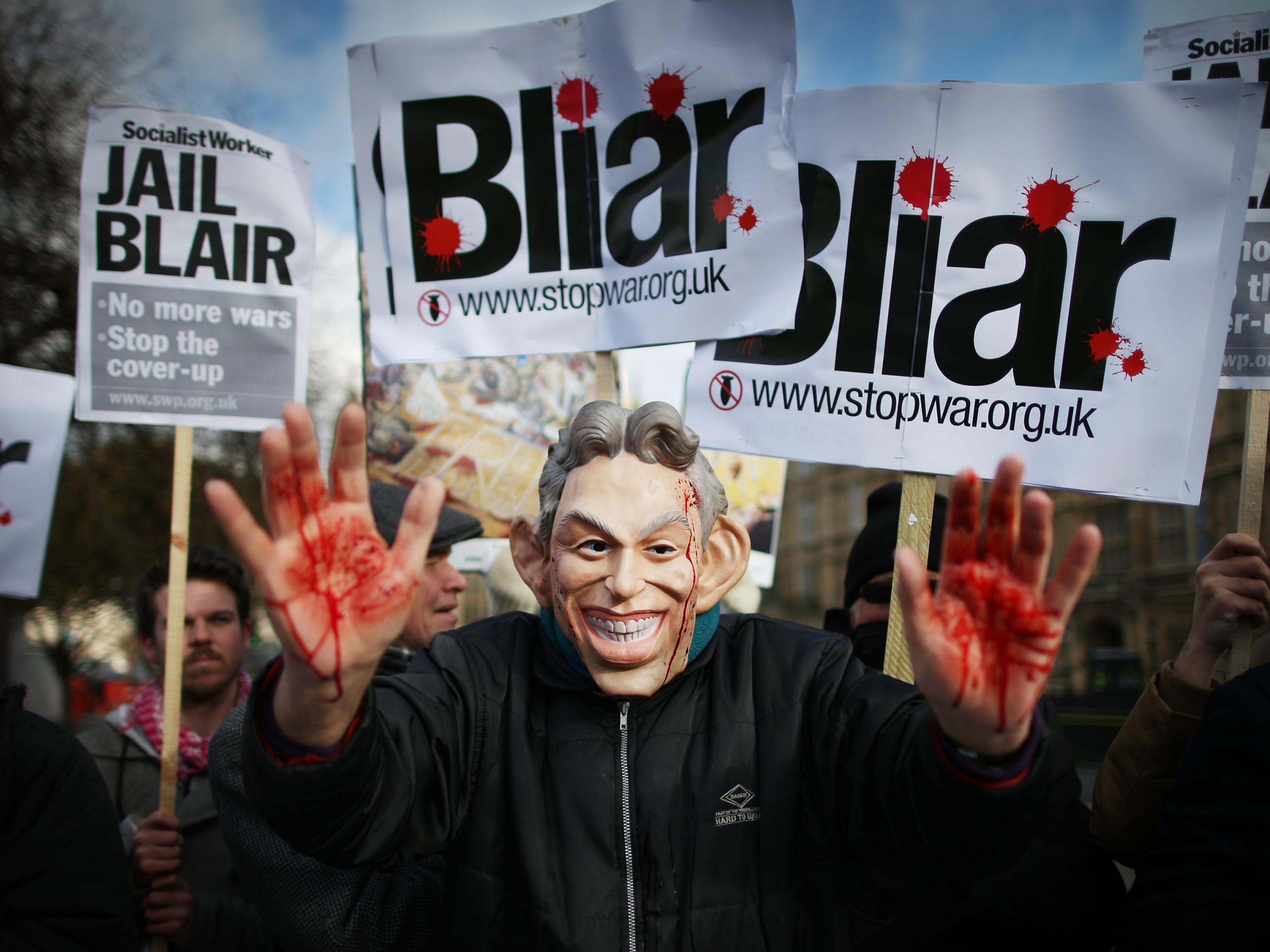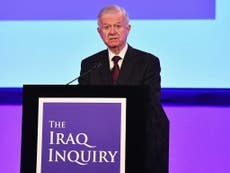After Chilcot, Tony Blair will forever be remembered for Iraq. Are you really surprised people voted for Corbyn?
The findings of the long-awaited report are worse for Blair than his allies were hoping, but the Chilcot report will not dilute the anger still felt towards him by many inside


When you ask Labour MPs how the party travelled from Tony Blair to Jeremy Corbyn in just eight years, many reply with just one word: “Iraq.” The view runs through the party, from the most ardent Blairites to ultra-loyal Corbynistas.
The Iraq War has cast a long shadow over Labour. It prevented Blair securing a bigger majority than the 66-seat one he won in 2005, down from 167 at the previous election. That deprived Gordon Brown of a bigger cushion which might have saved him when he fought his only general election as Prime Minister in 2010, and lost.
The explosion over Iraq among Labour members was delayed, but always bound to happen. Behind the scenes, Ed Miliband devoted enormous amounts of energy to keeping the party united. But when he stood down as leader last year, the fuse was lit.
Members who had quit, many over Iraq, returned to vote for Corbyn in the leadership election. Many of those who had remained seized their chance to bury New Labour. Although there were other concerns – such as being Tory-lite on the economy – Iraq was a powerful symbol of everything they disliked. The result: a derisory 4.5 per cent of the vote for Liz Kendall, the Blairite candidate, and an incredible 59.5 per cent for Corbyn, then chair of the Stop the War Coalition and a prominent campaigner against the 2003 invasion of Iraq.
So will the publication of the Chilcot inquiry finally lift the shadow from both Blair and his party? It is highly unlikely to do so, given the stronger than expected criticism of Blair from Sir John Chilcot in his report. It is not the establishment whitewash that Blair’s critics feared.
In his statement summarising his findings, Chilcot levelled a long list of severe criticisms at the former Prime Minister: that the UK chose to join the invasion before the peaceful options for disarmament by Iraq had been exhausted; the absence of proper Cabinet government; unjustified presentation of evidence claiming that Saddam Hussein had weapons of mass destruction; a failure to challenge “flawed intelligence and assessments;” the lack of planning for the aftermath of the invasion; ignoring warnings about its likely impact, including the threat to the UK from al-Qaeda, internal strife in Iraq and regional instability and, crucially, saying that the UK-US relationship does “not require unconditional support where our interests or judgements differ.”
The findings are worse for Blair than his allies were hoping. The Chilcot report will not dilute the anger still felt towards him by many inside his party, as well as people outside it.
Thinking back to conversations I had at the time, a huge part of the New Labour project was about not being Old Labour. For Blair, who constantly defined himself against his party, that meant changing the perception that Labour was weak on defence because of its recent support for unilateral nuclear disarmament. It was also about ending anti-Americanism and showing that Labour could work with a Republican President in George W Bush, to deny the Conservatives any opening. Blair remembered well the humiliating less than 30-minute White House meeting accorded to Neil Kinnock by Ronald Reagan in 1987; Blair went to the other end of the spectrum. It was also about Blair’s charm offensive with the media in general, and Rupert Murdoch in particular.
Blair allies say that on Iraq, he did not have the option of stopping a war since he knew that Bush was going to invade at some point. The question was whether to support it. So he gently pushed Bush down the United Nations route and, when that failed to produce a second resolution, the above factors came into play. Realising the scale of opposition among Labour MPs, Bush told Blair at the last-minute: “I’ll let you out of it...[it’s] more important that you survive as Prime Minister.” But Blair decided to be there. He told Bush in a telephone call on the eve of war: “Well, it might be my epitaph.” Bush laughed. But Blair was not joking.
In a declassified memo published by the Chilcot inquiry today, Blair told Bush: “I will be with you, whatever.” That says it all in just five words.
Whisper it softly, but Blair wants to be loved, or at least treated with more respect than he has been since leaving office in 2007. Chilcot’s highly critical verdict will not help him achieve that ambition.
Blair allies had hoped that the long-overdue report would finally draw a line under the conflict and even dared to hope that, eventually, Iraq would not be his political epitaph. But, at least in the short term, Iraq will remain Blair’s legacy. His friends hope that history will be kinder, that the achievements of the New Labour years will forge a much better legacy for the man who won three general elections.
Apart from Iraq, there is a good story to tell: the national minimum wage; investment in public services, particularly the NHS; tax credits to boost the incomes of the low paid; civil partnerships; abolition of Section 28 which banned councils from promoting homosexuality; the Good Friday Agreement on Northern Ireland and devolution for Scotland and Wales.
Blair offered strong leadership, a centrist government, a positive approach to Europe and influence in the world. David Cameron tried to copy it, styling himself as the “heir to Blair”, who he described as “the master”, but destroyed his career and his government by calling an unnecessary EU referendum.
As a result, Cameron will forever be known the man who accidentally took us out of Europe. Some labels are so sticky that politicians can never throw them off: Ed Miliband knifed his brother David; Michael Gove assassinated Boris Johnson. And the Blair legacy will continue to be summed up in one word: “Iraq.”


Join our commenting forum
Join thought-provoking conversations, follow other Independent readers and see their replies